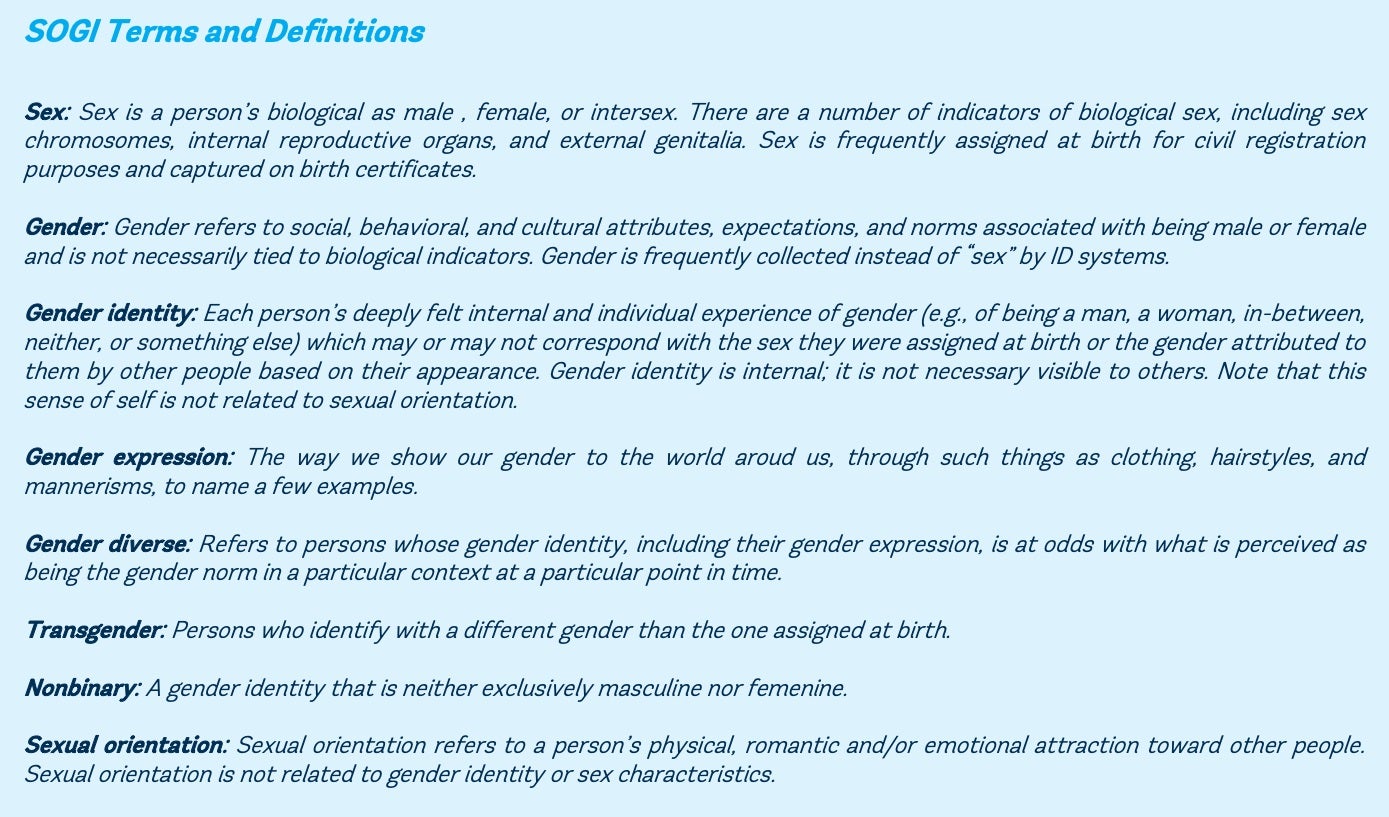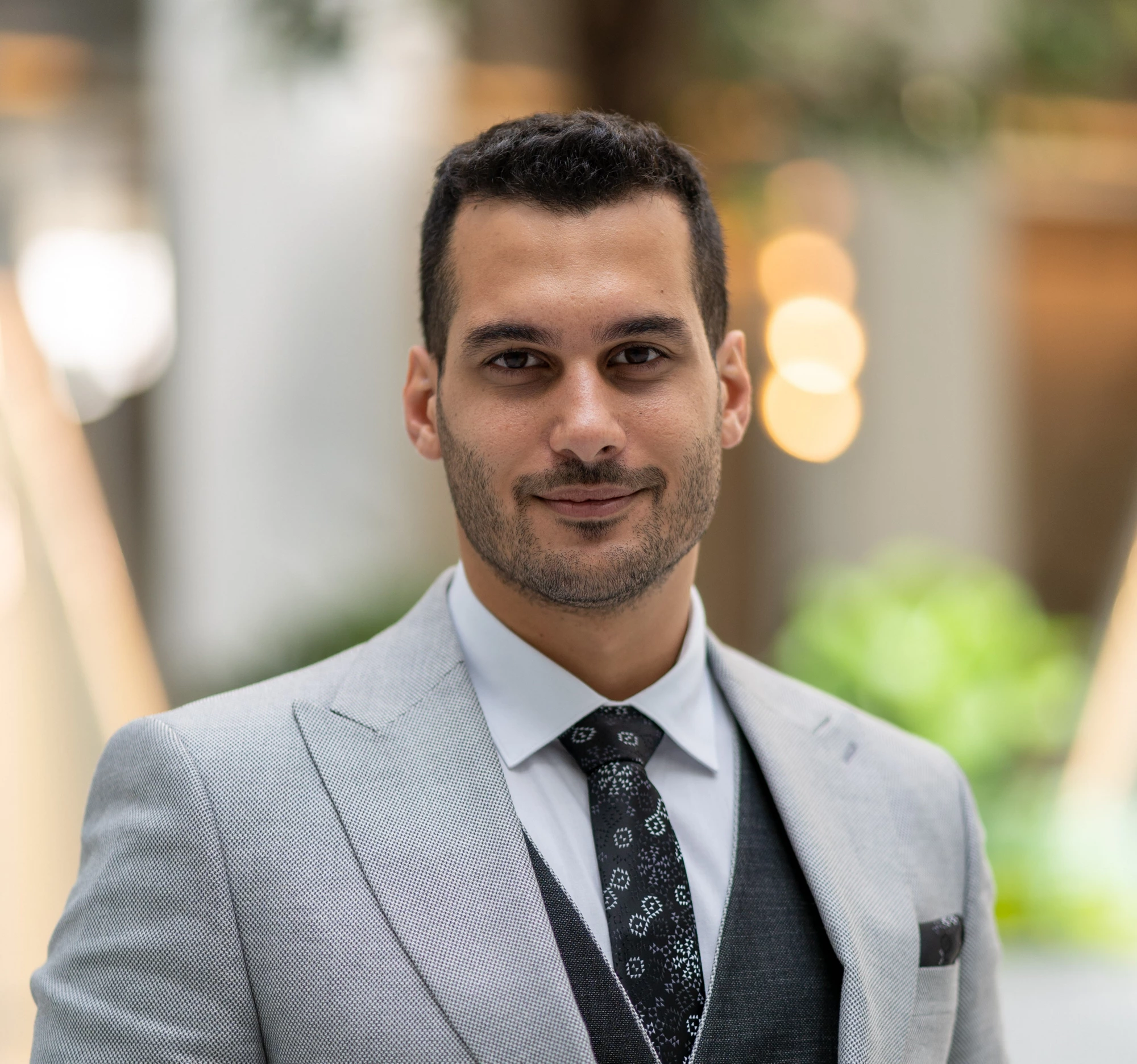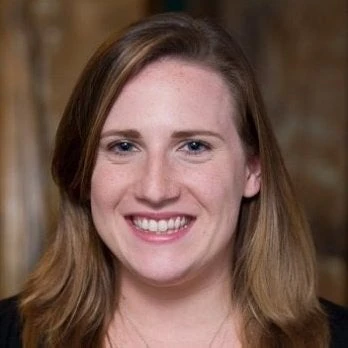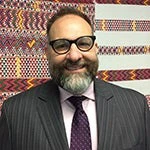 Un grupo de cuatro amigos sonriendo
Un grupo de cuatro amigos sonriendo
Like Sophia (a pseudonym), millions of people around the world have faced difficulties, discrimination, or persecution when attempting to apply for or use official identity documents because of their gender identity or gender expression.
For this reason, the United Nations Independent Expert on Sexual Orientation and Gender Identity (SOGI) called on countries to “Carefully review the reasoning behind the gathering and exhibition of certain data, and the rules governing data management , which must include separate considerations for the need to gather and the need to exhibit” in a 2018 report. This includes data on gender and sex attributes gathered and displayed as part of ID systems.
When they are trustworthy and accessible, ID systems can be an important tool for sustainable development by providing legal identity for all and acting as enablers to realize other rights and improve service delivery. Under its ID4D Initiative, the World Bank has played a key role in helping countries build ID systems that promote inclusion and protect people’s data and rights. This includes alignment with the Principles on Identification, which requires countries to ensure universal access and non-discrimination in ID system policy and use — including for SOGI groups.
In many countries, the collection of gender or sex attributes in ID systems is considered critical for the administration of public programs and the provision of sex or gender-disaggregated data for development planning and tracking gender gaps. However, discrimination on the grounds of gender identity may arise in the collection or validation of identity information during registration or based on how this information is written or stored on ID credentials that people use to prove who they are.
For example, consultations conducted by the World Bank with Lesbian, Gay, Bisexual, Transgender, and Intersex (LGBTI) organizations working in countries in East, West, and Central Africa have indicated that:
- For people identifying as transgender, the gender or sex “marker” or attribute on official ID credentials (which in most countries reflects the sex assigned at birth) is a perpetual trigger for discrimination.
- Transgender people are often subjected to violence by state agents and others upon realizing that the gender or sex marker on an ID does not “match” the person’s gender identity and expression.
- Gender or sex markers on IDs also affect individuals with gender expressions that do not fit stereotypical gender roles embedded in societies.
In light of these findings and consultations, the World Bank developed a new practitioner’s note on ID Systems and SOGI Inclusive Design to address key questions and highlight emerging good practices, including:
- Collecting gender — rather than sex attributes — reduces the risk of discrimination and more closely matches a person and their gender identity.
- If appropriate given prevailing norms about gender identity, flexibility beyond the binary (M/F) gender classification can promote greater recognition of gender minorities.
- The self-assertion of gender or sex attributes can help ensure fully inclusive and discrimination-free ID registration or updating of identity information.
- Not including a gender or sex attribute on identity credentials or as part of the numbering logic of ID numbers reduces the risk of discrimination.
Ultimately, as different countries have different SOGI contexts — what works in one country may not be appropriate in another. Therefore, decisions related to the design of ID systems and the collection of gender attributes should consider the prevailing legal and regulatory frameworks and the local context after close consultation with local civil society organizations representing sexual and gender minorities.





Join the Conversation